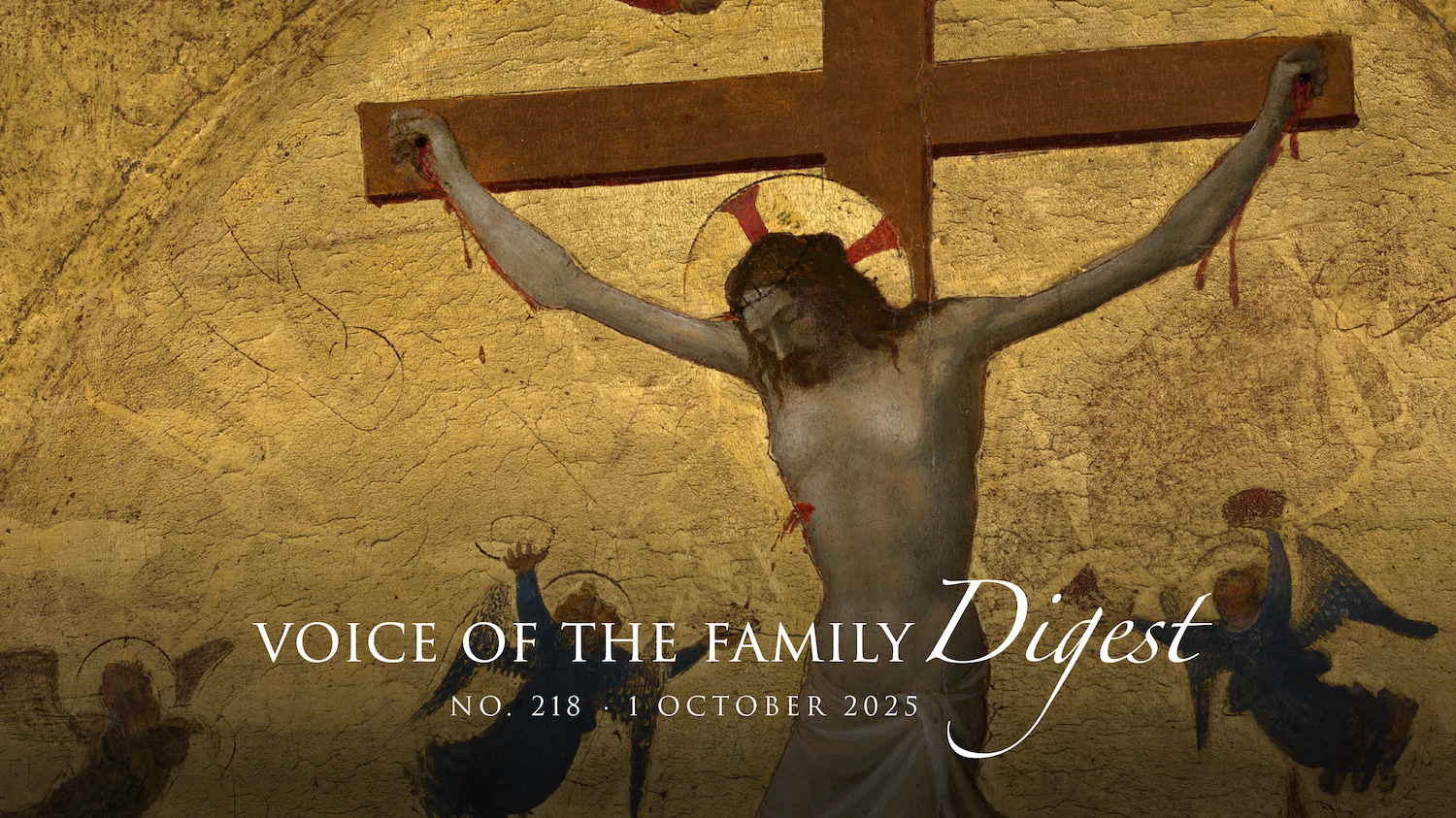“One body and one Spirit”: sermon on the seventeenth Sunday after Pentecost
By a Dominican Friar | 1 October 2025

This Sunday, our Lord poses the Pharisees a riddle that they are unwilling to solve. If the Christ, that is, the Messiah, is the Son of David, how is He also David’s Lord? We of course have an advantage over the Pharisees in that we know the answer to the riddle in advance. We know that the Messiah has, so to speak, both a heavenly side and an earthly side. He has an earthly side since in His human nature He is descended from King David; the Pharisees were not wrong to find that prophesied in their bibles. But He has also a heavenly side, since in His divine nature He is consubstantial with God the Father, and therefore is David’s Lord.
The Pharisees could perhaps not have been expected to answer the riddle perfectly straightaway, but how is that they don’t even make an attempt, and in fact from that day on don’t even dare to ask him any more questions? I think it is because they had already begun to guess the answer, and did not like it. A mere earthly king they might have been willing to follow. But that the Messiah should turn out to be the God of Israel Himself, come in person, come as a man; that was a bridge too far. They would have had then to submit their very souls to Jesus’s judgement, and that, they weren’t yet ready to do.
Now if our King has both a heavenly and an earthly side, we can expect that His kingdom will be the same. And this is indeed just what we find St Paul telling the Ephesians in the epistle. Christ’s Kingdom is “one body and one Spirit”. How is this?
First of all, Christ’s kingdom is a visible society on earth: it is the Church. The Pharisees, again, were not wrong to find in their bibles a promise from God that His Messiah would revive David’s kingdom. “I will raise up the booth of David that is fallen,” as He said through the prophet Amos. And that kingdom of David had not been a purely spiritual kingdom. It wouldn’t have been possible for someone living, for example, in Egypt or in Turkey, to have belonged to David’s kingdom simply by choosing to: as if such a person might have said to himself, “I rather like that king in Jerusalem and so from now on I will count him as being my king.” No: if the person had been serious, he would have had to leave his own land and ask permission to reside in Israel and then obey King David’s laws and recognise the authority of David’s ministers and officials, whether he liked them or not.
The kingdom of David’s Son, holy Church, is no less visible than that. It’s true that this kingdom, unlike ancient Israel, is spread across the earth, thanks be to God, and so it is not usually necessary to leave one’s home to join it. But it does have its own laws and its own ministers and officials, especially the bishops, and we have to recognise them if we want Jesus our King to recognise us as His true subjects. All that makes up the earthly side of the Messiah’s kingdom.
But this kingdom also has its heavenly side. Just as Christ is the Word made flesh, and just as a human being has a soul as well as a body, so the Church is held together by the Holy Spirit. One of the titles of the Holy Spirit is “the soul of the Church”. The Church has a divine Soul.
In fact, the parallel between Christ and His Kingdom is still greater. One of the things that we have to believe about our Lord is that His divine and human natures were never separated. You might say to me, “What, not even when He died?” But no, not even when He died. When our Lord died on the Cross, His human nature was, so to speak, broken in two; His holy body and soul were separated. But both these pieces of His human nature were still joined to His divinity. The body that lay in the tomb was God’s body. The soul that descended to the souls in the world below, was God’s soul.
Likewise with the Church. Whatever tribulations she may suffer, from within or without, her earthly and her heavenly parts can never be sundered. She is the kingdom of charity, where the Holy Ghost dwells, giving us power to love God above all else, and our neighbour as ourselves. The King can’t be separated from His Kingdom; for what God has joined together, no man can put apart.
